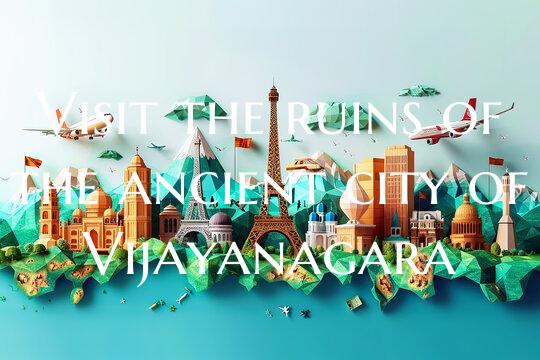
Nestled amidst the rugged terrain of southern India lies the awe-inspiring ruins of Vijayanagara, a once prosperous and mighty empire that thrived during the 14th to 16th centuries. Stepping into the enchanting remnants of this ancient city, visitors are transported back in time to a bygone era of grandeur, artistry, and cultural richness.
Vijayanagara, also known as the City of Victory, served as the capital of the Vijayanagara Empire, one of the greatest Hindu kingdoms in Indian history. Established by the Sangama brothers, Harihara and Bukka, the empire flourished under the reign of famed monarchs like Krishnadevaraya, leaving behind a legacy of architectural marvels and vibrant traditions.
One of the most striking features of Vijayanagara is its breathtaking ruins that stretch across a vast landscape, encompassing majestic temples, sprawling market areas, ornate palaces, and intricately carved pillars. The iconic Virupaksha Temple, dedicated to Lord Shiva, stands as a testament to the architectural finesse and spiritual devotion of the empire’s builders.
Exploring the ruins of Vijayanagara offers a captivating journey through history, where every stone tells a story of a glorious past. Visitors can wander through the ancient streets, marvel at the intricate carvings adorning the monuments, and imagine the bustling life that once thrived within these now silent walls.
Apart from its architectural wonders, Vijayanagara also boasts a vibrant cultural heritage that comes alive through its music, dance, and folklore. The city’s ruins serve as a backdrop for traditional performances, bringing to life the artistic fervor that once permeated the streets of this vibrant metropolis.
For history enthusiasts, archaeology buffs, or simply curious travelers, a visit to the ruins of Vijayanagara promises an unforgettable experience filled with wonder, discovery, and a deep appreciation for the resilience and creativity of ancient civilizations. As the sun sets over the majestic ruins, casting a golden hue on the weathered stones, one can’t help but feel a sense of reverence for the legacy of Vijayanagara and the enduring spirit of human endeavor.